America Is STUCK in the 20th Century | Ben Norton | HR #208
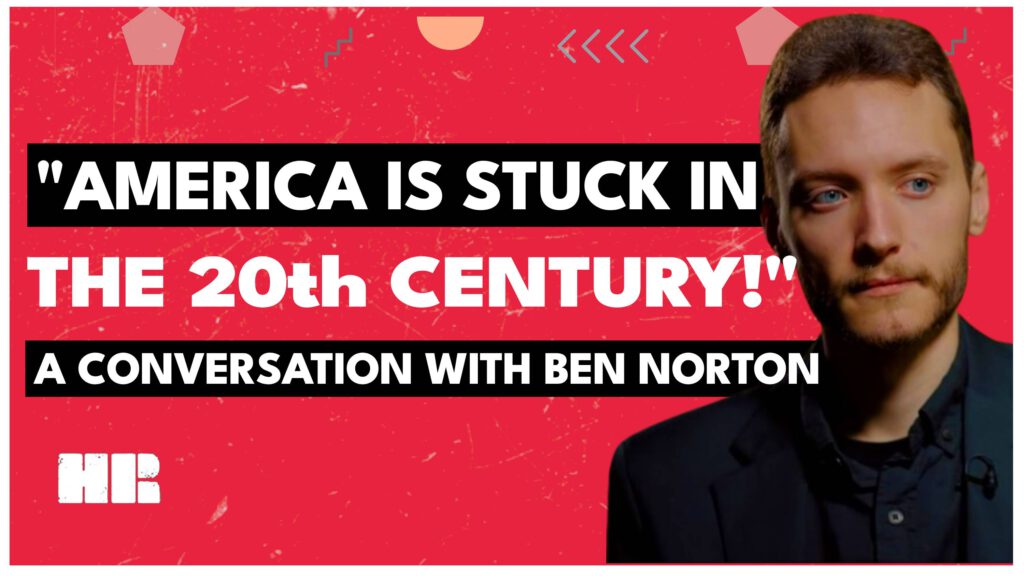
Ben Norton from The Geopolitical Economy Report, discusses various issues and global power shifts are discussed, with a focus on the International Court of Justice (ICJ), Israel, and the Middle East. Ben Norton highlights Israel’s history with the ICJ, including its losses in cases related to the separation wall and actions against Nicaragua during the Reagan Administration. The US’s veto power in the Security Council has prevented the implementation of these rulings, raising questions about the outcome of the current allegations of genocide against Israel at the ICJ. Additionally, Ben Norton discusses the US’s influence in the Middle East and China’s rise as a manufacturing superpower and a significant player in the production of green technology. The US’s interventionist policies and historical support for extremist Islamist groups in the region have fueled ongoing conflicts, causing many countries to seek closer ties with China. This trend is further augmented by China’s economic cooperation with various countries, including those in Africa, where the US has experienced negative impacts due to its historically aggressive foreign policies. Ben Norton also touches upon the resource curse, the influence of former colonizers in West African countries, and Russia’s diplomatic and trade strategies in Africa and South Asia. The US’s historic interventions and the limited incentives it offers have driven many developing countries to seek economic and diplomatic cooperation with China. The speaker argues that the US, stuck in a 20th-century mindset, needs to provide more incentives to compete with China rather than just threats.
Anti Zionism is NOT Anti-Semitism | Qorantos & Chris Jeffries | HR #207

Qorantos and Chris Jeffries discuss the Israeli-Palestinian conflict’s complexities and the controversial association between anti-Zionism and anti-Semitism. Guest Corantos, known for his debates regarding Gaza and Israel-Palestine, shares his views on Israel’s actions, questioning the use of the “human shield” argument and challenging the assumption that Zionists genuinely desire coexistence. The speakers also discuss the larger implications of US alliances with Israel, political discourse, and ethical concerns. In a lighter segment of the conversation, they touch on technological advancements, mental health, and the ethical considerations of veganism and animal agriculture.
Gaza, Capitalism and Imperialism | A Conversation with RATHBONE | HR #206

Rathbone discusses the complexities of capitalist systems, using the examples of New Orleans’ corrupt politics and the Israeli-Palestinian conflict. He shares his perspective on the struggling city of New Orleans, attributing its corruption to capitalist systems and admitting his deep connection to the city despite its challenges. However, he also emphasizes its unique history and cultural contributions. Regarding the Israeli-Palestinian conflict, Rathbone and Chris Jeffries discuss the historical context, including the displacement of Palestinians and the use of violence. They argue that Palestinians, like the Houthis in Yemen, resist by disrupting trade and challenging power imbalances. Rathbone is critical of international involvement, particularly the role of the United States, and expresses sympathy for resistance groups. The conversation also delves into the complexities of morality and violence in the context of the conflict. Rathbone argues against the condemnation of Palestinians for using violent resistance, noting historical examples of justified violence against oppressors. They also critique undercover Israeli operatives’ use of deception, emphasizing its harmful impact on the Palestinian community. Furthermore, Rathbone explores the control of resources and exertion of power through the examples of the Israeli-Palestinian conflict and U.S.-Israeli relationship. He calls for recognition of historical decisions and their consequences and warns of the potential global consequences if such actions continue.
Re-Engineering Humanity | Brett Frischmann | #205 HR Podcast
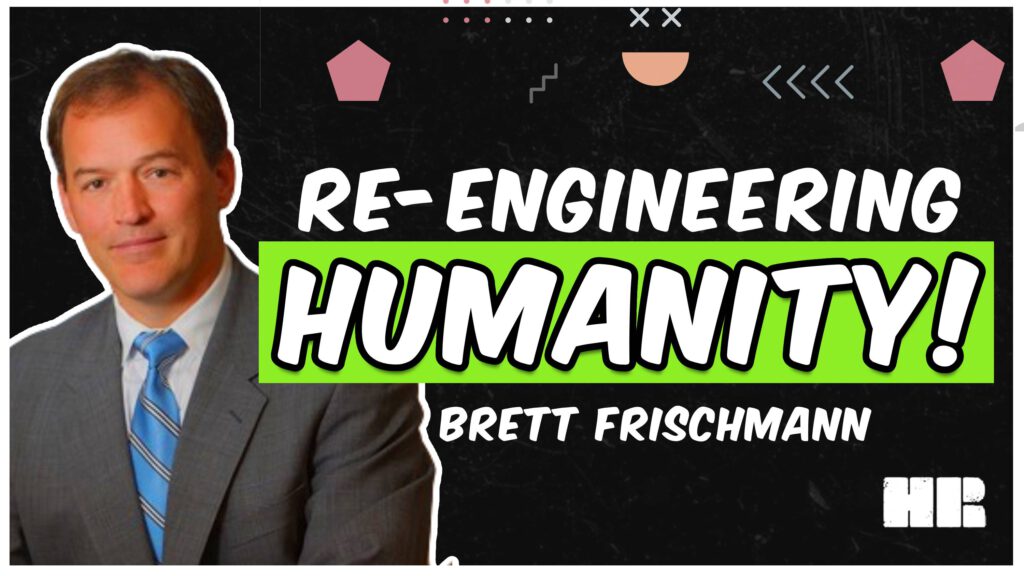
Brett Frischmann, the interdisciplinary law professor shares his unexpected journey from studying math, science, and astrophysics to becoming a law professor specializing in technology and economics. Frischmann discusses his book, “Re-Engineering Humanity,” which explores the impact of technologies and infrastructures on individuals and communities. He also expresses concerns about the power dynamics and potential consequences of surveillance and data collection, particularly within the context of the internet and artificial intelligence. Throughout the discussion, Frischmann emphasizes the importance of understanding the complex and interconnected nature of societal issues, including the role of individuals and communities in engaging with technology. He also touches upon the potential dangers of propaganda and manipulation, particularly in the context of new communication and media technologies. Overall, Frischmann’s talk highlights the importance of questioning our desires, understanding the systems that shape our beliefs, and advocating for responsible use of technology.
Why is Regulation Slower Than Technology? | Bruce Schneier | #204 HR Podcast
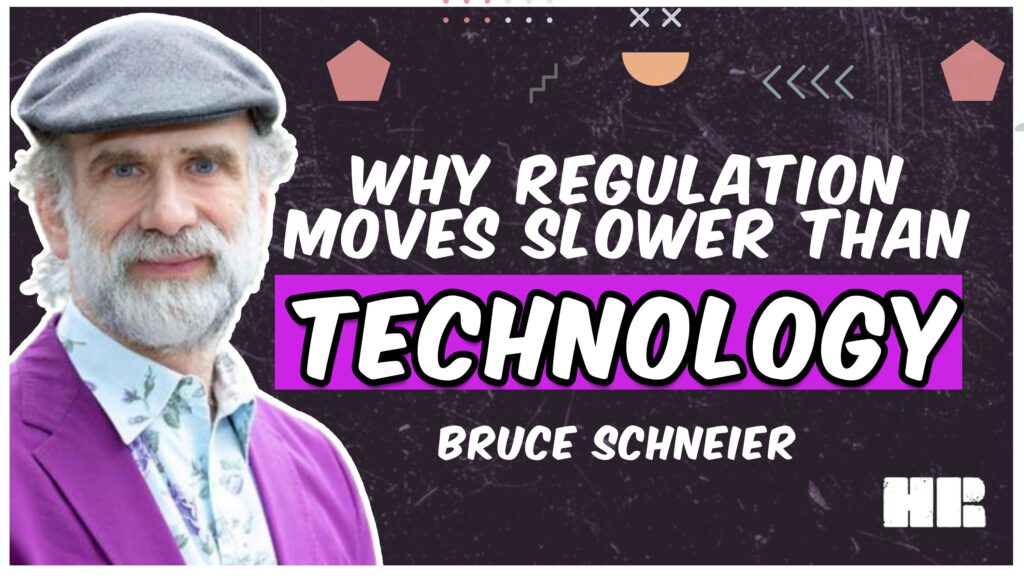
Cybersecurity expert Bruce Schneier discusses the challenges of applying traditional systems like democracy and capitalism to the information age. He argues that these outdated systems are struggling to adapt to the complexities of modern technology, leading to power imbalances and issues like slow regulation. Schneier expresses a desire to find new solutions and a greater role for regulatory bodies in counterbalancing corporate power. He also discusses the challenges of securing democracy in the digital age, particularly in relation to social media and fake news. Topics addressed include market dynamics, network effects, and the need for new ways to regulate companies and protect consumer rights in the face of rapidly evolving technologies, such as DRM and facial recognition. Concerns over privacy and data sharing with law enforcement are also highlighted
What the Future will Bring | Cory Doctorow | The Lost Cause | #203 HR Podcast
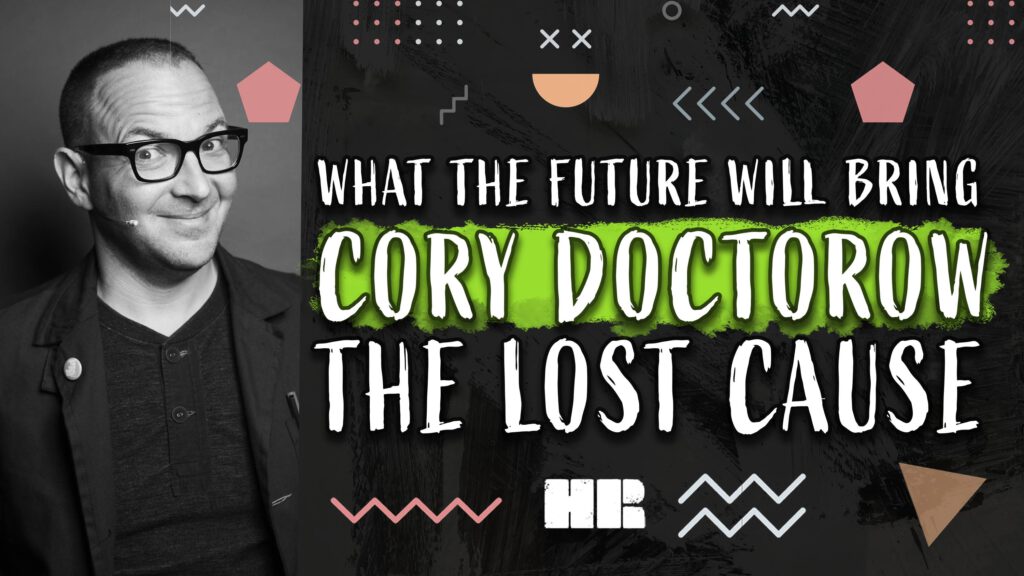
Chris Jeffries and Cory Doctorow discuss his latest book, “The Lost Cause” which explores a future where humans adapt to a post-climate apocalypse and embrace radical changes to harness 0.4% of the sun’s energy. Doctorow also talks about the origins of money and the roles of governments and markets. He critiques rents, intermediaries, and rent-seeking in the technology sector, discussing Uber’s history of violating competition laws and its transformative impact on the industry. Doctorow emphasizes the need for competition law enforcement and legislation to level the playing field for small businesses and prevent monopolies. He also touches upon the historical context of Marxist theory and the interplay between competition and regulation. Throughout the conversation, Doctorow raises concerns about the concentration of power and wealth in the technology sector and its potential impact on the future.
How Not To Age | Dr. Michael Greger | #202 HR Podcast
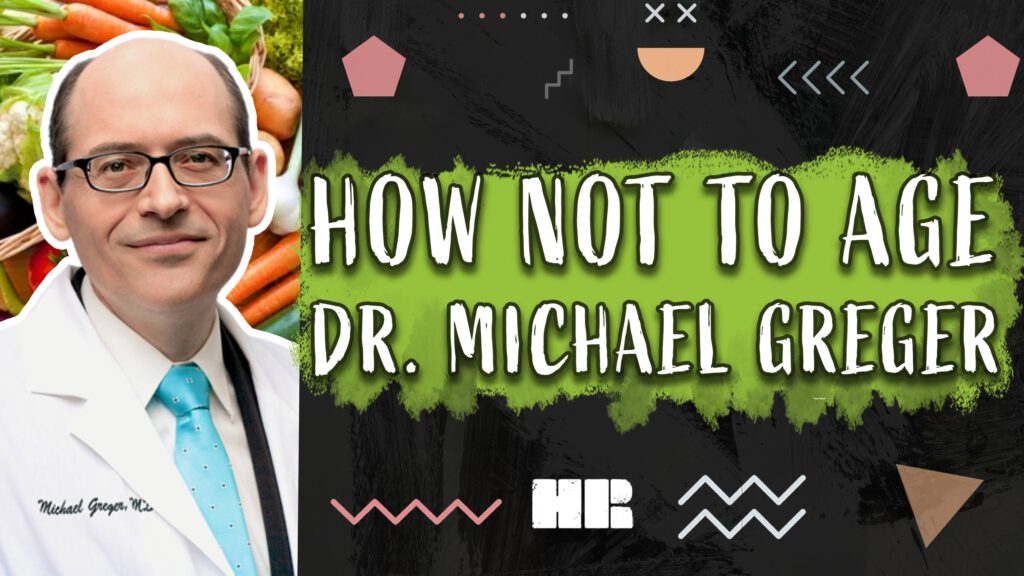
In “How Not To Age,” Dr. Michael Greger talks about the eating habits of centenarians, drawing from research in areas known as “blue zones” where people live longest and healthiest. These individuals mainly consume whole plant foods, limit processed items, meat, dairy, eggs, sugar, and salt, favoring fruits, vegetables, whole grains, legumes, nuts, seeds, mushrooms, and herbs. Dr. Greger also discusses the debate around coffee consumption and aging, stating that long-term health isn’t impaired despite short-term brain and arterial effects. He advises on optimal coffee consumption, such as filtered brewed coffee for the highest antioxidant benefits. Furthermore, Dr. Greger touches on topics like inflammation reduction through diet, natural anti-aging remedies, managing stress, and the impact of the food industry on health. He provides insights on increasing anti-aging enzyme AMPK through vinegar and black cumin, maintaining healthy blood sugar, and minimizing stress through healthy lifestyle choices. Dr. Greger criticizes the influence of food industries on nutrition science and encourages listeners to educate themselves and make informed decisions for their health
The Big Problem with Veganism | Chris Jeffries & Plant Geezer | #201 HR Podcast
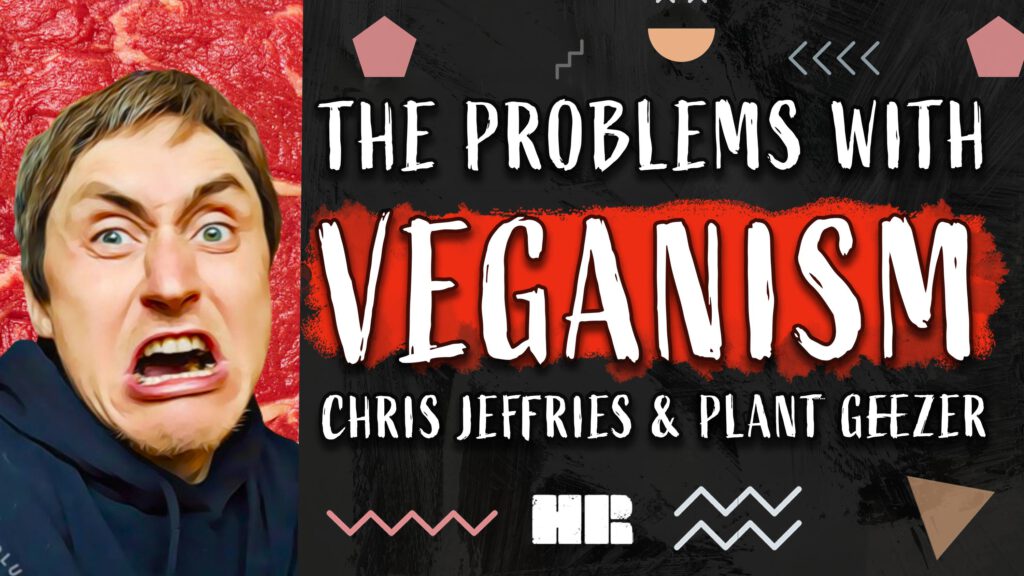
Chris Jeffries and Plant Geezer discuss the challenges and misconceptions surrounding veganism. They highlight the mean-spiritedness of some within the vegan community, which makes it difficult to gain traction with non-vegans. They also address arguments against veganism, such as humans being omnivores, and dismiss them as flawed. The speakers stress the importance of not picking and choosing which injustices to care about and emphasize the need for cultural change in order to gain majority support for veganism. They also discuss the influence of capitalism and government subsidies in promoting unhealthy eating habits and the need to address food addiction. Despite the challenges, they express hope that the vegan revolution can overcome these obstacles.
How To End Injustice Everywhere | Dr. Melanie Joy Ph.D. | #200 HR Podcast
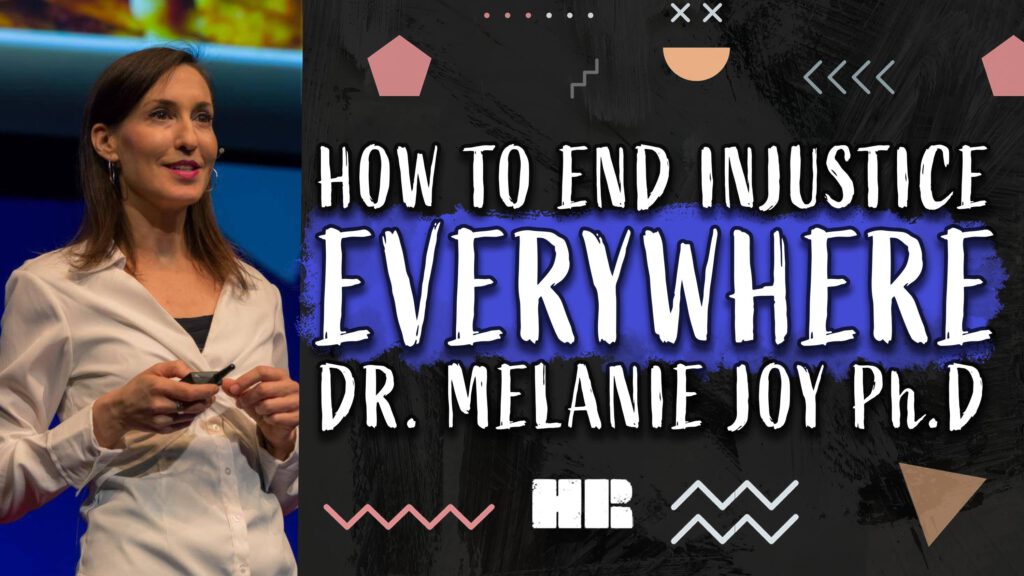
My Friend Dr. Melanie Joy, a Harvard-educated clinical and social psychologist, discusses her new book where she argues that all forms of injustice, including violence towards animals, humans, and the environment, share the same underlying structure and mentality. She also explores the concept of relational dysfunction, which stems from a non-relational mentality that disconnects individuals from their empathy and rational thoughts, leading to unjust actions and infighting within social movements. Dr. Joy emphasizes the importance of building relational literacy to combat this mentality and create a more relational world where dignity is honored for all beings. Additionally, Dr. Joy addresses the detrimental effects of infighting within the vegan community and the impacts of chronic disregulation on individuals and communication. She encourages individuals to prioritize self-regulation, clear communication, and emotional intelligence to reduce toxicity within movements and maintain productivity and effective engagement
How To DECOLONIZE Palestine | Professor Leila Farsakh Ph.D. | #199 HR Podcast
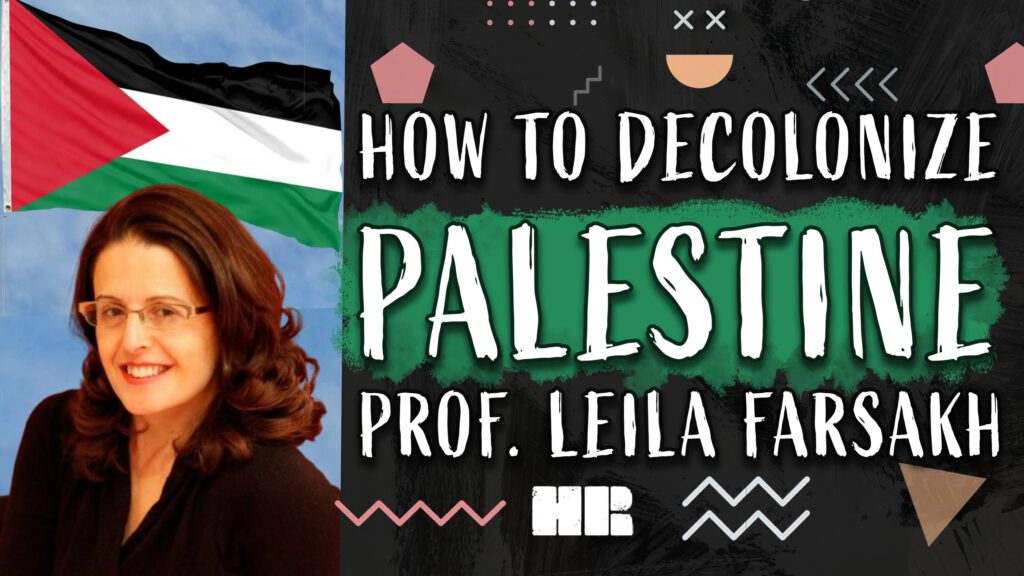
My Friend Professor Leila Farsakh Leila Farsakh discusses her book “Rethinking Statehood in Palestine” and her research on the doctrine of self-determination and decolonization. Farsakh argues that the creation of a Palestinian state after the 67 War and the UN resolution 242 was doomed from the start, as Israeli settlements destroyed the possibility of having territorial integrity and continuity in a potential Palestinian state. Farsakh also advocates for an alternative understanding of statehood that focuses on democratic institutions and depoliticizing ethnic identity in order to create a more inclusive state. She also discusses the history and principles of Zionism, and how Israel’s creation led to the displacement of two-thirds of the Palestinian population. Farsakh notes that Zionism was a colonialist movement that aimed to create a Jewish state as a project of salvation for the Jewish people. She discusses the hypocrisy of the global community’s response to the Israeli-Palestinian conflict, particularly how it is so different from their responses to the ongoing violence in Ukraine. Despite the challenges, Farsakh remains hopeful that a political solution is possible with the growing activism and support for Palestinian causes in the US, and notes the importance of respecting international law and the rule of law in order to resolve the conflict.